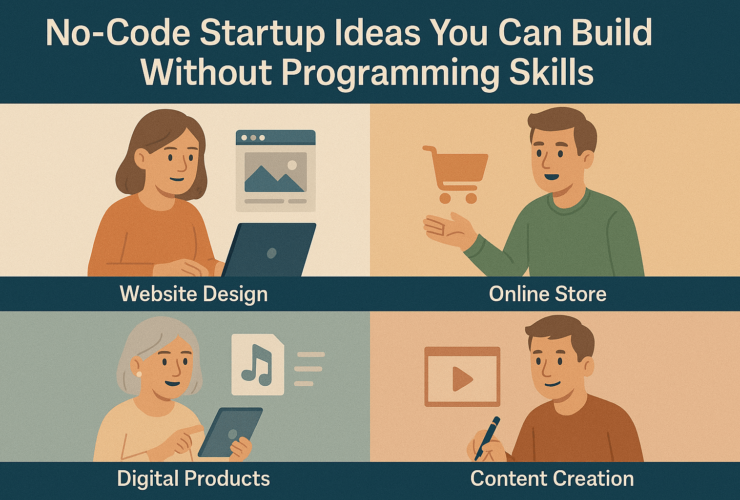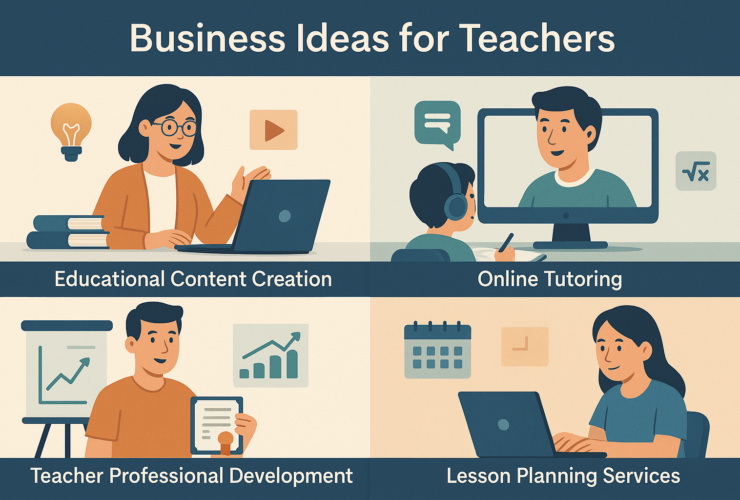36 Billion Dollar Startup Ideas for Non-Technical People
Starting a billion-dollar company may seem like an impossible feat reserved only for technical geniuses like Mark Zuckerberg and Elon Musk. But the truth is, you don’t need to be a coding expert or inventor to build a massively successful startup.
Many of the most profitable companies in the world were founded by non-technical people who simply identified an overlooked need or market opportunity.
With some business savvy, hustle, and a clever idea that improves people’s lives in some way, anyone has the potential to hit startup gold. Here are 10 billion-dollar startup ideas to inspire non-technical founders.
Also if you’re too lazy to read, check out the free business idea generator that will help you come up with unlimited ideas for your new startup or business.

Improving Senior Living and Elder Care
The senior care industry is on track to reach $1.14 trillion annually by 2027 as the population ages rapidly. Yet elders and their families continue to face major pain points around quality of care, cost, and convenience. A startup that can disrupt the space with a better model has huge potential.
Potential ideas:
- An on-demand network for vetted, affordable in-home caregivers. Make the hiring and payment process seamless through an app.
- A shared senior living model with luxury amenities and engaging social activities at an affordable monthly rate.
- An online marketplace matching seniors who want to rent out rooms in their homes with young people needing affordable housing. Built-in caregiving and companionship.
- A meal delivery service with nutritious, delicious food tailored for senior dietary needs and preferences.
Rethinking Learning and Education
The educational system is ripe for innovation. Students need more effective and accessible ways to learn. Opportunities exist to make education more engaging, interactive, and personalized.
Potential ideas:
- An online learning platform with short video courses on in-demand skills. Make it affordable and mobile-friendly.
- A digital tutoring app connecting students with vetted tutors for 1-on-1 instruction via video chat. Add AI technology for subject practice.
- A subscription box service delivering hands-on STEM projects and activities for kids. Augment with an online community.
- A tool allowing teachers to quickly create interactive video lessons with quizzes, prompts, and assessments. Monetize through a freemium model.
Leveraging the Pet Care Boom
Pet ownership is surging, especially among millennials. And owners are spending record sums on their pets – an estimated $109.6 billion in 2020. Capturing even a sliver of this market can translate to a billion-dollar opportunity.
Potential ideas:
- An on-demand dog walking/pet sitter service enabling instant booking and payment. Focus on reliability and security.
- A pet nutrition app with customized food and supplement recommendations based on pet breed, age, and condition. Work with vets.
- A pet supply e-commerce site and subscription service with unique, high-quality products not found in big box stores.
- A digital community app connecting pet owners for playdates, training advice, vet recommendations, and product deals.
Helping People Find Flexible, Remote Work
50% of the workforce will be freelance by 2027, and remote work is here to stay. New platforms enabling people to find flexible, well-paid remote jobs could see massive growth in the coming years.
Potential ideas:
- A job board exclusively for reputable remote jobs across fields. Develop niche verticals like customer service and sales.
- A workflow automation tool empowering freelancers to manage their business from finding work to invoicing.
- A virtual workspace app with features to enable remote team collaboration and productivity. Integrate video chat and project management.
- Online courses teaching in-demand remote work skills like copywriting, coding, marketing, and more. Position as an alternative to college.
Optimizing Daily Wellness Routines
The global wellness industry is approaching $5 trillion as people seek to improve nutrition, fitness, sleep, and mental health. Startups creatively enhancing people’s daily wellness routines can find an eager customer base.
Potential ideas:
- A personalized nutrition planning app guiding daily meal choices based on biometrics, health conditions, and goals. Connect users with nutritionists.
- A digital fitness platform with live and on-demand classes across modalities and difficulty levels. Offer hardware add-ons.
- A sleep tracking system combining a wearable, bed sensor, and alarm clock to assess and improve sleep. Provide coaching.
- A mindfulness app with curated meditations, breathwork, music, and journaling features. Offer live classes and communities.
Rethinking Transportation and Logistics
Transportation and shipping are ripe for new models. Startups that help people or products move more efficiently could be the next Uber or Amazon.
Potential ideas:
- An app matching travelers going in the same direction for ridesharing. Optimize routing and payments. Target commuters and intercity trips.
- Self-driving vehicle technology making personal and commercial transport safer and cheaper long term. Start with logistics.
- A crowdsourced same-day delivery network enabling anyone to be a courier. Undercut large delivery services on pricing.
- A platform helping businesses plan and optimize supply chains to save costs and reduce emissions. Apply AI and modeling.
Building Community Through Events
As social media becomes less personal, an opportunity exists to bring people together again through offline events and activities. This builds community while also driving revenue.
Potential ideas:
- A platform for easily discovering and creating local interest-based events. Monetize through ticket fees.
- Physical spaces with amenities for cost-effective hosting of events like conferences, weddings, and performances.
- An event planning/promotion agency specialized in creating pop-up “experiences” for brands and causes.
- Subscription boxes with supplies and guidance for couples or families to create “at home” date nights, game nights, crafting sessions, etc.
Financial Tools for Daily Life
Managing money remains a challenge for many Americans. Startups meeting short-term financial needs like cash flow and credit can build big businesses catering to the underserved.
Potential ideas:
- An income-smoothing service providing stability for hourly workers with fluctuating paychecks.
- An app consolidating debts into one payment plan at lower interest rates. Automate and incentivize payoff.
- AI-driven credit monitoring and financial planning app guiding users to improve credit and make savvy money decisions.
- A digitally-native bank with superior interest rates, budgeting tools, and no hidden fees. Reimagine offerings.
Empowering Small Business Owners
Small businesses are central to economic growth but often lack resources. Models providing affordable digital tools and services to this huge market can scale exponentially.
Potential ideas:
- A mobile-first digital marketing suite with easy SEO, email, payments, web design, and more for small biz.
- On-demand bookkeeping, HR, payroll, and benefits services for SMBs integrated into one platform.
- A marketplace for buying affordable commercial insurance tailored to different business types. Automate underwriting.
- A small business lending platform using alternative data for risk assessment to offer affordable capital access.
While some of these ideas may seem saturated or difficult to execute, remember that startups ultimately succeed by finding an angle others have missed or by offering a major improvement on the status quo. With determination and the right business acumen, even crowded markets can support new billion-dollar disruptors.
No idea is too ambitious for non-technical founders with grit. And in today’s digital age, technical barriers to entry are lower than ever before. Building a basic website or app is well within reach. The real work lies in identifying an underserved human need, creating a compelling offer, and effectively getting the word out to the right audiences.
Key Takeaways for Aspiring Non-Technical Founders:
- Immerse yourself in emerging startup trends and look for problems hiding in plain sight. Talk to people about pain points.
- Rethink existing services by focusing on untapped niches or enhancing the user experience.
- Leverage no-code tools and freelance developer marketplaces to build prototypes and MVPs. Keep initial versions simple.
- Prioritize great branding, copywriting, and marketing from day one. This builds buzz and gets people excited about your solution.
- Find talented technical co-founders and employees to build and refine your product over time. Offer equity.
- Start connecting with your target market immediately to validate your assumptions. Be prepared to pivot.
- Consider startup accelerators like Y Combinator that offer funding, expertise, and connections. The competition is stiff but the payoff is immense for those accepted.
- Stay lean at first and focus on growth over profitability. Work nonstop on getting your product in front of the right people.
With some smarts, tenacity, and a bit of luck, your billion-dollar idea could be right around the corner. The possibilities are endless.













